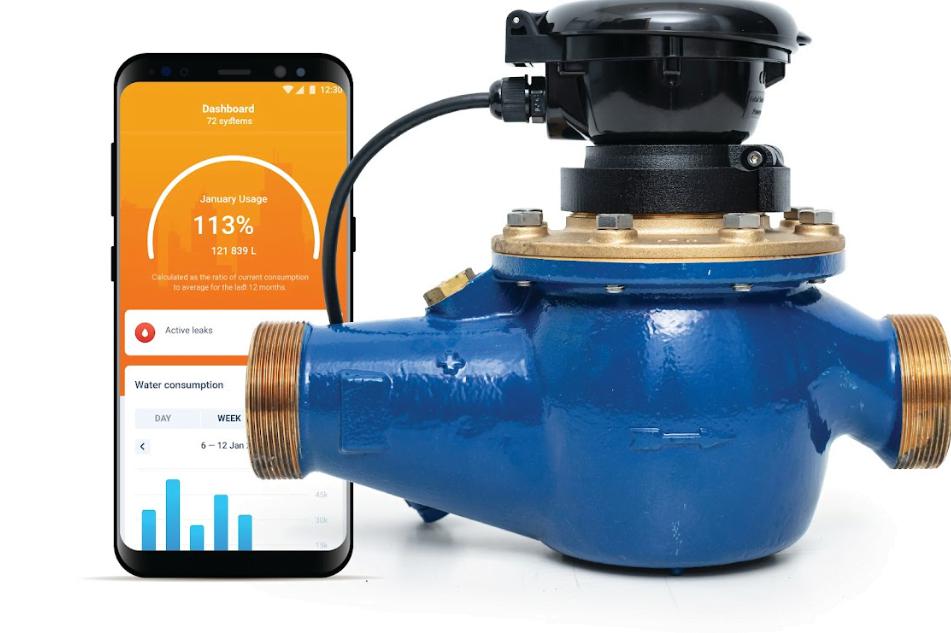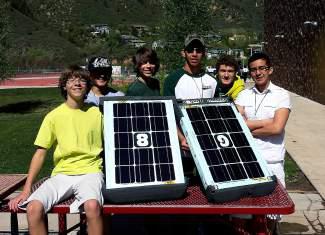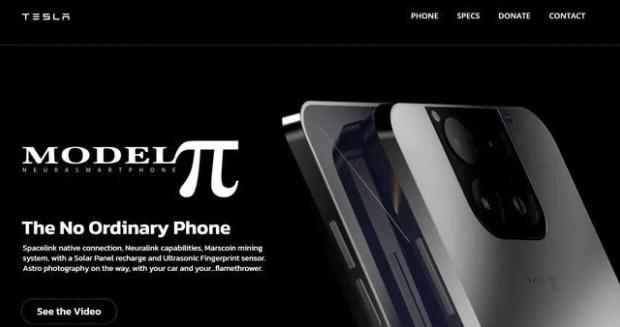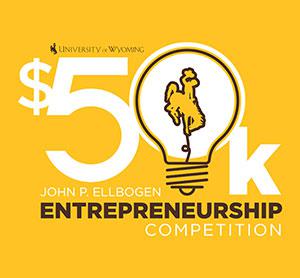More than 70 percent of our planet is covered in water. And yet, in all its abundance, water is becoming scarce resource. According to the World Wildlife Fund (WWF), 1.1 billion people lack access to it and 2.7 billion experience its scarcity at least once a year. By 2025, two-thirds of the world population may face water shortages.
“I’m worried about how much people don’t care. Or how much people don’t realize that there are cities in the US the richest country in the world that suffer from a water crisis and it’s happening now. It’s not in 20 years or in a million years, it is happening now,” warned Eyal Yassky from Hilico, a company that develops portable rainwater collectors, when he spoke to NoCamels.
Meanwhile, in the Middle East, one of the most water-scarce regions in the world, one country stood out for its ingenious approaches to water conservation. “Israel is a Silicon Valley for water technology,” Esther Altura from DrizzleX, a water metering company, tells NoCamels. “It makes so much sense that [Israel] is going to bring this message of water conservation to the [world].”
From the “Silicon Valley of water tech”, NoCamels highlights six Israeli startups developing innovative technologies that aim to curb the global water crisis.
The carbon footprint of water: WINT
Founded in 2017, WINT Water Intelligence is a company that utilizes artificial intelligence to detect and stop leaks in buildings. WINT customers also get deep data insights about wastewater and their water own levels of water consumption. In 2019, the company expanded into the US and Europe and its technology has been adopted by companies like Microsoft and Mastercard.
Yaron Dycian, former graduate of elite IDF R&D unit Talpiot, Silicon Valley veteran, and now Chief Product and Strategy Officer at WINT, tells NoCamels about the wider implications of water wastage.
“So here’s the crazy thing – water in buildings is wasted at an average of 25 percent. So whatever goes into your building, the quarter typically goes to waste,” says Dycian. This is mostly because current building infrastructure is not conceived to meet the required standards of water conservation, he says.
Damages and financial losses need not result from a large malfunction in the pipeline in the building. A single leaky toilet could be enough. “It’s death by a 1000 cuts, and a leaky toilet is one of these cuts,” Dycian says. “Now [assume] the seal [of the toilet] doesn’t shut well because it’s broken or damaged. So water continues to flow at [for example] 350 liters per hour. Now, doing the math, you multiply that by 24 hours per day, 365 days a year, and you get to about 30,000 shekels or $10,000 for, on average, one leaky toilet in the building at any point in time. It’s enormous, it’s phenomenal. It’s endless amount of water wasted, just one toilet,”
The solution is very simple:, according to the Israeli company. WINT has installed control units that read the data from water meters. An AI system distinguishes then between normal and abnormal flow patterns. In case of a leak or malfunctioning pipeline, the system “screams” and warns the operator to shut down the water flow. “It’s very easy to fix. The moment I tell you ‘You have this problem!’ the facility team can go and fix it in 10 minutes,” Dycian says.
Overuse of water is not only a financial burden, it also contributes to global warming. Pumping, collecting, cleaning, treating, and distributing water are energy-consuming and CO2-emitting activities. “13 percent of the American energy consumption go to these processes. So you can imagine the amount of carbon that gets emitted because of this water consumption,” says Dycian.
“Water is carbon,” he says, “and by using less water we actually generate less carbon and we, therefore, help reduce the magnitude of the problem [of global warming]. And using 25 percent less water is not even a sacrifice. Nothing in our lifestyles or anything that we do will change. Think of that simple toilet leaking 24/7, 365 [days a year.] It contributes as much carbon to the atmosphere as one passenger car over a year. You fix one of those toilets, it is as if you took a car off the road. That’s a big, big deal.”
WINT raised $15 million in a Series B round in January, led by Insight Partners and with participation from existing investors like Marius Nacht, a co-founder of Israeli cybersecurity pioneer Checkpoint Technologies and a serial entrepreneur. The investment fuels WINT’s continued market expansion and innovation, a statement from the company said. They have raised a total of $25 million to date.
In November, US business magazine Fast Company recognized WINT’s partnership with PepsiCo as a sustainability winner in their Next Big Thing in Tech awards. In a pilot program with the US beverage and snack giant, the company helped PepsiCo cut water consumption by 10 percent at a Belgian snack facility. Now PepsiCo is rolling out WINT’s tech to five European sites.
Making people aware: DrizzleX
“In Israel, [we have a saying:] Every drop counts. And that’s not what I saw in the United States. I was shocked how people were so careless about water usage,” Esther Altura, co-founder of DrizzleX and grandmother of eight, tells NoCamels.
Her company, DrizzleX, which she manages with her son Ariel Altura who is CTO, was founded in 2019. The company has raised a total of $1 million in funding over two rounds, including a Series A in November 2020.
The company’s main market is the US, though it is also set to expand in countries like Chile, Brazil, and India.
DrizzleX started with the idea of making tenants in multi-apartment buildings pay individually for their water bills instead of leaving this to the landlords.
Using their own smart micrometers that can be easily applied to any type of residence or facility, old or new, the aim is to have people become aware of their own water expenses. “Research shows that the best water conservation [method] is when people are financially responsible for the water they use,” Altura says.
The firm’s primary method of operation is by collecting data on water flow and having it analyzed by an AI in the company’s cloud. “We count every drop in the apartment. Every time you use water, it’s being counted [and the] records go to our database,” she says.
While DrizzleX sees itself first and foremost as a water management company whose goal is the conservation of water for landlords and tenants to save money, there is also an educational mission to it as well. “We use our vast amount of data to educate people on how to use water wisely. DrizzleX is an educational tool. People learn their own [water consuming] habits and can compare them with the ones of their peers. One of the biggest things they found in research is that people are very [sensible to] social pressure and on how you’re doing compared to your neighbors,” she says.

Water from the sky: Hilico
Hailing from a career in photography and documentary filmmaking, the young adventurous entrepreneur Eyal Yassky has seen his fair share of natural catastrophes around the world.
Water was always a central issue after every crisis, Yassky tells NoCamels, referring to his experience in a mudslide in Columbia. “So when there’s an earthquake or anything of that sort it kills a certain amount of people. Let’s say, 100 people. We know that the lack of access to clean water will kill about three times more than that. And that happens in every disaster. No matter where you go, no matter which kind of disaster,” he says.
When he lacked adequate water supply, Yassky began to wonder why no one was using rain as a water source, noting the abundance of rainwater in catastrophe-stricken areas. “Rainwater is the most natural form of water that you can get. Even groundwater initially got there from the sky and people have been harvesting rain since the dawn of time. And the vast majority of natural disasters are caused by rain in one way or another,” he explains.
Teaming up with his childhood friend Moshe Belilty, Yassky co-founded Hilico in 2016. Their solution was a portable rainwater collector that allowed people in off-grid communities to have access to clean water.
Subscribe
“The philosophy behind it is that water equals freedom, that’s what it’s all about. If you have access to clean water you’re free to go to school, to go to work, to be safe,” says Yassky.
The portable rainwater collector is lightweight (around 1kg), easy to install, and very resilient. The collecting antibacterial cloth is shaped like jungle leaves. “In the center of it, there’s a filter that leads into a tube the tube and then goes to a foldable storage unit of 10 liters. These can be daisy-chained forever so there’s no limit to how much you can collect,” he says.
The product was meant to go live on Amazon this year for individual purchase when the war in Ukraine broke out, at which point Yassky and Belilty decided to halt sales and donate available stocks of their rainwater collector to Ukrainian refugees.
UVC LED cleaning: Alumor
“It is a well-known statistic that more than a billion people are drinking untreated, dangerous water every day and hundreds of thousands of people die every day from unclean water,” David Waimann, Alumor business developer, tells NoCamels in a Zoom conversation.
As an economist and former British Peace Corps volunteer, Waimann has a lot to say about the global water crisis in the third world.
“There is a misnomer — a misunderstanding — that the bigger problem is no water at all in poorer countries. This is not true. Most of the problems with water in poorer countries are that the water is dirty and dangerous. So we are here to overcome that problem,” he says.
Using UVC LED technology and a coarse filter to separate sediments and kill off bacteria and viruses, Alumor has developed a small compact water filtration device called Miriam’s Well.
“It has been designed with the developing world in mind, says Waimann, “so it cleans to a very high level, indeed to the most stringent levels of the US government. It works with solar energy, it is very low cost, it is very light and it does two liters in a minute. And it is very, very simple maintenance. So you switch the filter once every year or so. And that can be done by the people in the field,” says Waimann.
Miriam’s Well is still in its prototype phase and has yet to enter third world markets since the company was only founded in 2019. According to Waimann, Alumor aims to raise sufficient funds to manufacture a mass product that hundreds of thousands of people will be using over the next five years in the developing world.
A better way to irrigate: Agrinoze
With agricultural production expected to expand by 70 percent in the next thirty years and water resources dwindling, according to the World Bank, making sure plants get just the right amount of water needed has become a mission for the global agri-tech sector.
Using a crop itself as an indicator of how much water the plant really needs, Israeli firm Agrinoze has found its way around the overuse of water and fertilizers through precision irrigation. “We have a system based on sensors and an algorithm that automatically and autonomously irrigates the crop 24/7 and the trigger for the irrigation is the crop itself. You can think of us as a self-driving car,” says Erez Fait, the company’s co-founder, and president. Shortly before his return to Israel after a month-long tour abroad, he spoke to NoCamels over Zoom from a hotel room on a chilly morning in Washington DC.
One result of this precision irrigation is a higher crop yield with lower water consumption. “Saving water is the outcome of this precision agriculture. Our solution is that by [aiming to] grow more we save water. We currently have projects in Morocco, in Nevada, in Arizona where the target is saving water. Because we are saving [water up to] 40 or 50 percent [you can say] we are a water-saving solution,” says Fait.
Founded in 2018, Agrinoze has developed precision technology that also limits the overuse of underground water-polluting fertilizers through water recycling. “The other advantage of Agrinoze is the ability to use wastewater or [fertilizer] treated water much better because we can take into consideration the existing nutrients. Think that now instead of having a lack of water we can take this wastewater, which in other cases goes into the river or the sea, and use it for agriculture,” he says.
“We have a banana plantation next to Haifa [city in North-western Israel], where we are irrigating with recycled water. And for the last four years [we used] zero fertilizer. Zero means zero. And usually bananas need a lot of potassium and other [minerals]. And the yields are the same, sometimes more,” says Fait.
Agrinoze was recently honored as one of ten startups featured in the World Agri-Tech Innovation Summit’s TechHub in San Francisco, California.
Away with the water-polluting plastic: Solutum
The twenty-nine million metric tons of plastic trash that flow into oceans every year is expected to nearly triple by 2040, according to National Geographic. Along with endangering wildlife, the plastic itself pollutes waterways, and riverbeds and, under the guise of microparticles, finds its way back into our bodies through contaminated food and water.
Shocked by the images of plastic islands and aware of the pollution plastic causes to our environment, Sharon Barak, CEO of the 2017 established company Solutum, set out to develop a product that feels and looks like plastic, yet dissolves when coming in contact with water.
“We wanted to find a solution for the 20 percent plastic waste that is not collected and ends up in the ocean. In the ocean, you really see the outcome. Our products are therefore designed to be water biodegradable,” Barak tells NoCamels.
Most importantly, the plastic substitute of Solutum does not pollute the water after dissolving. “Afterwards you can drink it, it’s safe. We are not using any [polluting] material. We are doing continuous testing in labs to ensure there are no side effects,” she says.
The environmental safety of the product is crucial to Solutum with ever more people becoming aware of the danger posed by (micro) plastic found in water. “When I started this company four and a half years ago, I needed to explain to people ‘, Okay, listen, there is a plastic issue in our planet.’ But today everyone has become aware of it. I am always asked ‘Does your product leave microplastics’. ‘No it doesn’t!”
Solutum is in the seed stage and still raising funds to expand. They last raised an undisclosed amount in 2020.
Barak feels encouraged by the interest shown by plastic-producing companies. Against her expectations, she believes plastic producing companies have realized that the tide is turning against single-use plastic, and they have become aware of the need to find profitable solutions that stop harming the environment.




